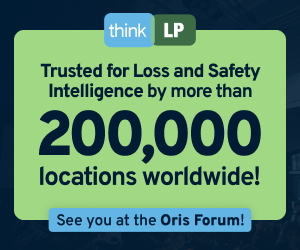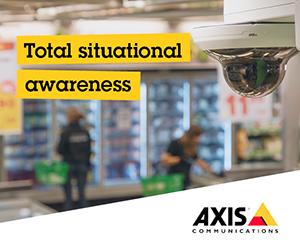Law Enforcement
Horses for Courses
Pegasus to Take Wing in the Fight Against Retail Crime
The British proverb “horses for courses” derives from the world of racing where different equines perform better when the course conditions suit their bloodline, training and physicality.
The idiom has anthropomorphised into the business world where stable team performance revolves around the best people for the corporate fences, flats, and furlongs. making them the “go to” thoroughbreds for that particular course because of their complementary talents to others in the team.
But those courses seldom run smoothly, especially when the “fences” in question are criminal handlers of millions of pounds worth of stolen-to-order items from the UK’s leading retailers, who receive their merchandise from armies of prolific and persistent shop thieves, many of whom are undeterred by the myriad of other “offences” to their name.
Indeed, in the course of tackling retail crime, the approach has traditionally been a one-horse race, namely law enforcement and dialling 999 or 101, despite the fact that reporting has been notoriously challenging because of inconsistent or poor responses from the UK’s overburdened police forces, even when incidents of store theft involve violence and aggression as they increasingly do.
In terms of everyday hurdles to clear, retailers recognise that the issue has been compounded by the term “shoplifting”, which has always diminished the offence when compared to other policing priorities such as child sexual exploitation, terrorism or modern-day slavery and people and drug trafficking, even though prolific and persistent store theft is widely recognised as a gateway to serious and organised crime.
Indeed, the narrative has become more nuanced, with recent screaming tabloid and broadcast headlines and newspaper campaigns calling for the tackling of the “out-of-control” and “feral” store thieves blighting high streets and out-of-town retail parks, which in part prompted the former Home Secretary Suella Braverman to insist that all incidents of so-called minor crime, including shoplifting, where evidence or lines of enquiry exist, will now have to be investigated, a move that has created additional priority hurdles for the UK’s forty-three police forces.
Working Together to Reduce Crime
Of course, behind the headlines there have long been initiatives to support policing, and at government level there exists the National Retail Crime Steering Group (NRCSG) which is supported by the Home Office and chaired by the Minister of State for Crime, Policing and Fire Chris Philp.
The NRCSG is advised by organisations including the British Retail Consortium (BRC), the National Business Crime Centre (NBCC)—the conduit between the police and business communities—and the National Business Crime Solution (NBCS), a not-for-profit organisation which has information sharing agreements in place with all forty-three police forces to tackle organised and prolific travelling crime. All these organisations have a remit to share intelligence and best practice when it comes to working collaboratively with law enforcement.
In late September 2023, there was also the inaugural meeting of the new Retail Crime Advisory Group (RCAG), a gathering of different stakeholders from the retail sector and their suppliers who met at Boots’ head office in Nottingham. The meeting was chaired by Katy Bourne, the Police and Crime Commissioner (PCC) for Sussex and the Association of Police and Crime Commissioners’ national lead for business crime.
At the meeting, she described the three types of retail offenders. The opportunistic, the persistent—those who were often feeding drug or substance dependencies—and the organised gangs, intelligence on all of which is essential to help tackle the problem.
An output of the RCAG, which included round table discussions on types of offenders, knowledge sharing and reporting to the police as well as victim impacts and support, was also to develop a series of recommendations relating to the issues the retail sector faces.
In early October, almost ninety retailers wrote to the government asking for support with regards to retail crime, as criminals are literally “emptying stores”.
The letter asked for assaulting or abusing a retail worker to become an aggravated offence to provide parity with Scotland where such a law was introduced in 2021. The proposed offence would carry a tougher sentence and require police to record all incidents of retail crime and allocate more resources to tackle the issue.
The letter which highlighted a 27 per cent increase in store theft this year alone, demanded a meeting with Suella Braverman to develop an action plan.
Helen Dickinson, chief executive of the BRC said: “It is vital that action is taken before the scourge of retail crime gets any worse.”
“We are seeing organised gangs threatening staff with weapons and emptying stores. We are seeing violence against colleagues who are doing their job and asking for age verification. We are seeing a torrent of abuse aimed at hard-working shop staff. It is simply unacceptable—no one should have to go to work fearing for their safety. We need the government to stand with the millions of retail workers who kept us safe during the pandemic,” she added.
Pegasus
Now there is another horse in the race and this one has the potential to take flight. Pegasus, named after the winged white stallion of Greek mythology, is the name for a retailer sponsored police initiative designed to ensure that all forces adopt a zero-tolerance approach to shop theft through an intelligence-led campaign targeting organised and prolific offenders—those local and national organised criminals who blight the high street and hide in the shadows created by a perceived lack of coherent and joined-up data linking them to multiple offences.
National retailers, of course, are no strangers to travelling criminality, with offenders using the UK motorway networks to commit offences in multiple parts of the UK, safe in the knowledge that the structure of forty-three police forces would provide them with a cloak of anonymity because different constabularies did not share cross-force-border intelligence on a regular basis when it came to what was deemed to be low priority crime.
Traditionally, shoplifting, as it has traditionally been perceived was never going to reach the threshold of priority to warrant the attention of Regional Organised Crime Units (ROCUs) where cross-border intelligence is regularly shared.
This was the reason the NBCS, now in its tenth year, was formed to enable members to share data in relation to travelling gangs and prolific offenders and provide detailed evidence packs for prosecution.
Why Pegasus?
According to NBCC figures, reported store thefts represented 274,000 cases, while the BRC reported eight million incidents at a cost to the industry of £1 billion over the same period—a discrepancy described by superintendent Patrick Holdaway, head of the NBCC, as “a big gap in reporting”.
Of those reported incidents, only 14 per cent of offenders were charged while 54 per cent of cases were quickly closed without a suspect being identified.
This discrepancy in reporting is in part due to disenchanted retailers feeling little point in filing long-winded incident reports because they know that police will not or cannot attend even serious incidents because of other pressing priorities.
In Sussex, Katy Bourne, who is leading the Pegasus initiative, had previously introduced a pilot of “one-touch reporting” in partnership with the NBCS and the Co-op, which reduced the time to complete an incident report from an average of thirty minutes to just two minutes, an example of good practice to help encourage retailers to file all crimes with the police.
She described the initiative as ground-breaking in helping to identify the prolific offenders in the county she has represented for the past eleven years.
“What we need now is a single, richer vision of organised retail crime across the whole of the country,” she told Loss Prevention Magazine Europe.
“We know from our experience in Sussex that 80 per cent of all retail crime is committed by 20 per cent of prolific offenders, and identifying them and taking them off the streets can result in longer custodial sentences.”
“The more intelligence we can provide, the richer the picture we can paint to task the police with going after the organised crime gangs—you can’t manage this without measuring it,” she added.
This intelligence piece will now be focussed upon analysis of the huge spike in shoplifting which has been driven by organised retail criminals (ORCs) who steal themselves—or get foot soldiers to shoplift on their behalf—the higher-value items such as steak, alcohol, and tobacco for re-sale, often through local networks or ”no questions asked” pubs, corner shops or, increasingly online.
Much of this spike has been overlaid with the narrative of the current cost-of-living crisis and people stealing for “need over greed”, but evidence from many retailers, including stories of steaming gangs accessing kiosks and filling “builders bags” with tobacco products suggests more industrial-levels of targeted criminality are at play.
Pegasus is chaired by Katy Bourne and supported by the police, and a group of major retailers who have collectively pledged almost £1m to fund a dedicated intelligence capability to tackle serious organised retail crime.
Launched in October with backing from the Home Office, those supporting retailers will be funding a team of intelligence analysts to work alongside existing police teams looking at serious organised crime groups.
They will use the breadth of industry data that is available on offences and crime patterns to help police develop a single national version of the serious organised crime threat against retailers.
OPAL
The team is being recruited now to work within OPAL, the police’s national acquisitive crime unit led by chief constable Amanda Blakeman, the National Police Chiefs’ Council’s (NPCC) lead for acquisitive crime.
The move is significant in that it takes shoplifting out of the minor offence category that has dogged the debate about business crime for years. It also joins up the thinking around intelligence and organised criminality across the UK.
OPAL, established on 1 April 2019, already has as a mature team of intelligence staff, including analysts and researchers who liaise with law enforcement officers, partners, and industry, both nationally and internationally, to establish contacts, link investigations where common methods or suspects are identified, and to establish and share good practice.
Prior to the link to Pegasus, strong contacts had already been forged between OPAL and the UK’s nine dedicated ROCUs, whose main role is to investigate and disrupt organised crime groups operating across police force boundaries.
Some ROCUs provide support to investigations into other types of crime such as homicide and kidnap, but they also act as an important point of connection between police forces and the National Crime Agency (NCA) as part of a more joined-up policing model across the country.
In terms of Pegasus and OPAL, it is anticipated that the intelligence packages will be developed for use early in 2024 to help local forces target the crime groups operating on their patch.
Referring to the successful “One Touch Reporting” project in Sussex, Katy Bourne said: “If you make a concerted effort to tackle prolific offenders at a local level you can have a big impact on reducing crime overall.”
Katy, the longest serving female PCC, sees Pegasus as a form of levelling-up of crime reporting that can help drive police priorities.
“When I was first elected as a PCC in 2012, I was the only one who had business crime as part of their manifesto, and that was because I come from a business background. Now, I am delighted to say that 90 per cent of PCCs across the UK have a focus on business crime, with some such as Essex and Nottingham having dedicated business crime units within their forces.
“Pegasus, which will run for two years, will be ground-breaking because it will deliver on the two asks retailers have charged me to help deliver: how can we tackle serious criminal gangs going into retail outlets across different force areas, and how do we engage police on a national level.”
She gives the example of the Pele brothers, a prolific gang of shoplifters who travelled and preyed on stores across fifteen different force areas and stole a staggering £1.5 million worth of merchandise before they were caught and eventually jailed.
“It took two-and-a-half years to bring them to justice and get them convicted, because we have forty-three different police forces, and being caught in one area would only result in offences being dealt with in isolation because no one has that overview—police forces only look at what is happening on their patch—so we need to be able to join up the intelligence data,” she said.
“As I have a good understanding of policy, I approached Amanda Blakeman at OPAL because of the work they do nationally with serious acquisitive crime and she is now on board and a key part of Pegasus, working alongside the retailers involved in the project.”
“As a member of the NRCSG, I approached the Policing Minister Chris Philp on behalf of the retailers and told him that they want to do something about this problem of serious organised crime and he gave me the green light—that is how Pegasus was born.”
Chris Philp, who recognises that shoplifting is not a minor offence, has now asked police forces to draw up a list of their most prolific shoplifters to create a national database, and the Home Office will also contribute to the scheme through its own anti-social behaviour initiative, which will also include greater patrols of areas where prolific shoplifters operate.
The retailers whose own analysts will be working on sharing the data will also benefit from a more complete picture of the prolific organised retail criminals working across the UK.
“Our first objective is to identify the scale of this threat so that we can share the knowledge and come up with strategies that are actionable,” said Katy.
Such actionable strategies could involve a roll-out of initiatives such as “One Touch Reporting” where store colleagues spend a fraction of the time logging crime than they would have had to previously, but they are more confident that police action will follow based upon the intelligence provided.
“One Touch Reporting” really worked in Sussex because it brought down the typical reporting time from thirty to two minutes,” she said.
“We want everyone to focus on one language and one single vision of organised crime gangs.”
The second objective for Pegasus is to collate the crime data into packages that can be shared with police forces.
“In Sussex and our work with the Co-op, the Police could target the 20 per cent of known persistent offenders driving 80 per cent of local shoplifting and related offences, and as a result of their behaviour they would be looking at longer custodial sentences.”
“The more intelligence we can put into this, the richer the picture for police to go after these organised criminals. It is the industrial levels of crime driven by brazen individuals that is causing so many challenges for retailers, and that is why I am really excited to be part of this initiative which has been able to achieve so much operational buy-in—tackling these criminals targeting multiple stores in multiple locations is a step change in the fight against retail crime,” she added.
Her words were echoed by Kevin Hollinrake, the government minister for small business, who told The Times: “Organised criminality is really hitting businesses hard and that’s the bit they really want police to deal with—Pegasus will enable this.”
One of Pegasus’s supporting retail partners, the Co-op has been widely campaigning in the media in terms of threats to colleagues from determined and prolific store thieves across its convenience estate. The business has recorded a 35 per cent increase in shoplifting offences for the first six months of 2023, and worryingly a 36 per cent increase in assaults on members of staff.
Paul Gerrard, the Co-op’s campaign and public affairs director said that organised crime gangs were driving the increase in shoplifting rather than other factors such as the cost-of-living crisis.
Steve Teatum, group head of loss prevention at Next said: “We are pleased to be supporting the proposed Pegasus/OPAL initiative. By sharing our crime intelligence with OPAL I’m confident the retail OCG landscape can be more accurately mapped than it currently is, allowing for the necessary police resources to be deployed to tackle the issue.”
“I also think it’s so important that the retail community as a whole comes together in the spirit of collaboration, social, and corporate responsibility in helping each other tackle this growing threat.”
If it is to be recognised as the right horse for this course, Pegasus has the potential to go the distance by joining up the data gaps that will enable visibility of organised retail criminality. It has to prove that after its initial two years there is an education and engagement lesson for the wider retail community as to the importance of reporting all crime to ultimately prevent the initiative from falling at the first hurdle.






